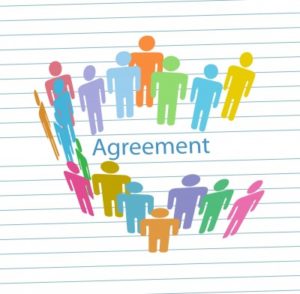Partner Compensation Structures, A Seven Part Series – The Monarch (1 of 7)
Partner compensation, Law firm compensation, Compensation structures, partner compensation structure, shareholder compensation, The Monarch Structure
Partner compensation, Law firm compensation, Compensation structures, partner compensation structure, shareholder compensation, The Monarch Structure
 “We’re thinking about combining our firm of three lawyers with another small law firm. Do you have any guidance for us on what to consider in making our decision?” Clients ask me questions like this more frequently these days.
“We’re thinking about combining our firm of three lawyers with another small law firm. Do you have any guidance for us on what to consider in making our decision?” Clients ask me questions like this more frequently these days.
In some cases, a booming law practice has rainmakers looking for experienced help. Some senior lawyers in solo and small firms consider mergers as they begin thinking about succession planning. Sometimes young lawyers with developing practices seek to cut per capita overhead by spreading fixed costs across more fee earners. For some small firms, the merger mania in BigLaw has stimulated them to consider their options.
When contemplating a merger, many risks and rewards must be considered and due diligence investigations should be conducted. Culture clashes undermine mergers more frequently than any other factor, however.
When there are only 5 lawyers in the whole office, common values become even more critical. There is nowhere to hide. Variances in strongly held beliefs and values tend to grow from cracks to chasms. They can threaten the productivity, health and work satisfaction of everyone in the office, as well as the success of the firm as a whole.
Fortunately, with fewer people involved in a small firm, it can be a little easier to identify and discuss issues that may develop into rifts in a law firm partnership. Here are a few subjects to discuss.
1. What is your attitude toward money and the firm’s fiscal policy? Do you advocate leveraging debt to help the firm advance quickly and to weather dry spells? Or do you prefer a more conservative pay-as-you-go approach, relying on partners for any bridge loans required during slower periods? […]
 Most lawyers evolve as they develop experience. They learn from mistakes and from observing other lawyers. Although every lawyer is different, most go through some of the same predictable stages.
Most lawyers evolve as they develop experience. They learn from mistakes and from observing other lawyers. Although every lawyer is different, most go through some of the same predictable stages.
Conscious Incompetence
You’ve just graduated from law school and passed the bar. Whether it’s your first client or your first assignment from a partner, your excitement is mixed with anxiety. You’ve never done this before. You don’t really know what you are doing. You’re scared that someone will find out.
Unconscious Incompetence
You have some experience under your belt. You feel like you know what you’re doing. In fact, in some circumstances you actually do know what you’re doing, but you don’t know what you don’t know.
As a young lawyer negotiating agreements, I carefully examined every aspect of the proposed contract. I was trained in a prestigious firm that expected perfection from its lawyers. I sought to achieve a pristine document that gave my client maximal protection from every conceivable mishap. […]
 “There is no such thing as a worthless conversation, provided you know what to listen for.”
“There is no such thing as a worthless conversation, provided you know what to listen for.”
—James Nathan Miller, Author
Many people think effective communication is simply choosing the right words to say. I submit, however, that poor listening skills create the biggest barrier to good communication.
Effective communicators listen attentively, but even attentive listeners can go astray. If a radio is not finely tuned to the right station, the reception gets garbled. Similarly, to fully understand a speaker’s message, a listener must properly tune in to the purpose of the speaking.
By way of illustration, most of us have whined about a frustrating problem at some point. We often know what to do about our problem, but we want to complain first in the hope of garnering some sympathy. Our frustration increases when listeners respond with suggested solutions to the problem. That wasn’t the kind of listening we wanted.
Many listeners miscue about the appropriate kind of listening required because most of us have a preferred approach that we use until we understand that something else is needed. We need to switch listening approaches to fit various situations. […]
 Who knew that lawyers could find good advice about negotiating on behalf of their clients in The Costco Connection? In her article titled Attitude Shift, Rhonda Abrams warns business owners not to negotiate like today’s polarized and ineffective politicians. “Stop thinking of the other side as your opponent,” she advises.
Who knew that lawyers could find good advice about negotiating on behalf of their clients in The Costco Connection? In her article titled Attitude Shift, Rhonda Abrams warns business owners not to negotiate like today’s polarized and ineffective politicians. “Stop thinking of the other side as your opponent,” she advises.
When it comes to negotiation, clients often say that they want a tough lawyer. What they really want is a solution to their problem or the healing of an injury. Their strategy for obtaining that may involve hiring a tough lawyer. […]
“I suppose it is tempting, if the only tool you have is a hammer, to treat everything as if it were a nail,” observed the famous psychologist , Abraham Maslow. When it comes to conflict resolution, the only tool that most lawyers get from law school is a hammer.
Hammering your opponent might work in a trial, but it doesn’t create optimal outcomes in a casual disagreement. It doesn’t work very well when your “opponent” is your boss or someone you care about. It doesn’t foster healthy and productive on-going relationships at the office. Hammering the other side and trying to “win” tends to spawn resistance, rigidity, passive-aggressive behavior, escalation or chronic difficulties. Defeating your opponent rarely results in genuine resolution of the issue.
Lacking other tools, ironically, some lawyers avoid confrontation on their own behalf. I know a very effective trial attorney who wouldn’t return a shirt that was the wrong size. Conflict avoiders allow the biggest rainmaker or the loudest bully in the office to control decision-making, without benefit of their valuable input. Meanwhile the law firm experiences low morale, costly turnover, missed opportunities and wasteful mistakes.
To help you become more effective at resolving your own conflicts, as well as at helping clients resolve theirs, here’s a brief primer on a few techniques to add to your tool box. […]
Recently one of my lawyer clients described to me how he handles things with his high-strung child. As he described his process, it reminded me of how really effective family lawyers handle clients in the emotional throes of a divorce or custody battle.
In this time of economic turmoil and uncertain futures, today every lawyer has a stressed out client to deal with. See if this parent’s process might help you be more effective in managing both yourself, and those you advise, in stressful situations.
1. Prep them for everything. Let them know in advance what the two of you will each do, and what Plan B will be, if Plan A doesn’t work.
2. Prompt them during the process. As you engage in the process and things get a little scary, remind them that this is what you were expecting. […]
“I send out this simple, straight-forward email, then I get all this negative reaction. I don’t get it.”
Misconstrued Emails
Lawyers and law firm administrators that I coach report this to me a lot. Emails are informal and easy to send quickly, so we often zip them off without rereading them to see how they might sound to the reader. The recipients of the email then supply the tone of voice, cadence and volume to it, which can dramatically affect the tenor of the message.
We send out something like “Don’t forget to sign up by Tuesday!” In our minds we hear the polite, encouraging voice of a flight attendant on the intercom reminding us to keep our seatbelts fastened during the flight. Our reader, however, hears the edgy voice of an eighth grade math teacher admonishing an unruly class. If there is any history of friction or conflict between sender and reader (as frequently happens with opposing counsel, subordinates who have been “counseled” or partners in competition for firm resources), the reader may hear the threatening bark of a drill sergeant.
Why is that? Most of us can’t type as fast as we can speak, so we tend toward brevity and directness in our emails. Brevity in conversation often comes across as curt, disinterested, rude or commanding, unless we soften it with a cheery or concerned tone. In email, the reader inserts the tone themselves, and they often don’t supply the most cordial tone.
We all have someone we have to deal with who is somehow blocking us from getting what we want. It may be opposing counsel, but it may just as likely be our own partner or a staff member who isn’t performing to our expectations. In those situations our frustration levels mount, and some of us sneer or explode. We go from dealing with a difficult person to being a difficult person.
Many such problems can be solved or prevented if we can improve our communication skills. Here are some “clues you can use” to improve your communication and reduce the conflict in your office.
1. Deal with annoyances while they are small.
This concept particularly applies to people we interact with frequently. Sometimes someone does something that annoys us, inconveniences us or hurts us, but because it is a small matter, we think it would be too petty to bring up. By the time it (or something like it) happens the tenth time, we have a big stack of grievances to address, and our emotions run high. We appear to react out of proportion to the incident, but actually we are reacting to ten incidents. Ambrose Bierce, an American author and newspaper columnist, said, “Speak when you are angry and you will make the best speech you will ever regret.” If we simply address the issue the first or second time it occurs, we usually can discuss it calmly, casually and without a lot of emotional investment.
Dan told the group what he thought was the appropriate course of action to take. No one voiced any opposition, so he took steps to set the plan into motion. Later he was surprised to get feedback that Karen thought he was controlling and railroaded the group into doing things his way. Dan felt dumbfounded and frustrated. If Karen had another idea, why didn’t she speak up in the first place?
Have you ever been in Dan’s shoes? Or do you identify with Karen’s perspective, acquiescing to someone else’s way of doing things when you don’t really want to? The problem may be as much a matter of conversational styles as substantive disagreement, according to Deborah Tannen, Ph.D., bestselling author and linguistics professor at Georgetown University.
In her book Talking from 9 to 5: How Women’s and Men’s Conversational Styles Affect Who Gets Heard, Who Gets Credit, and What Gets Done at Work, Tannen points out that many people expect ideas to be explored through verbal opposition. “When presenting their own ideas, they state them in the most certain and absolute form they can and wait to see if they are challenged,” says Tannen. “Their thinking is that if there are weaknesses, someone will point them out, and by trying to argue against those objections they will find out how their ideas hold up.”